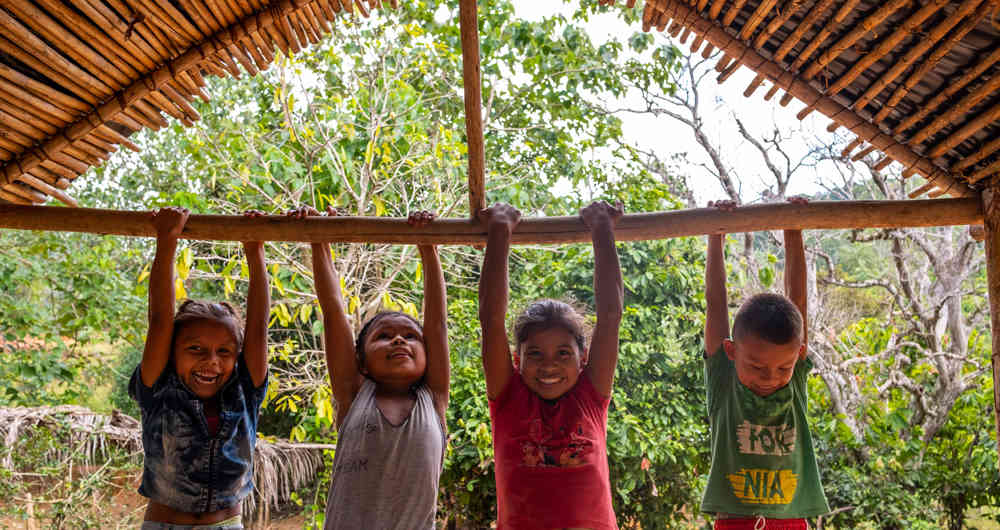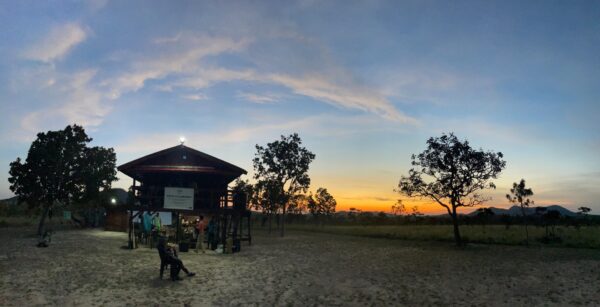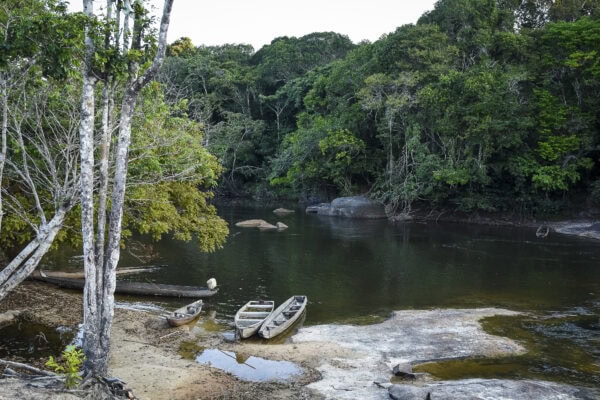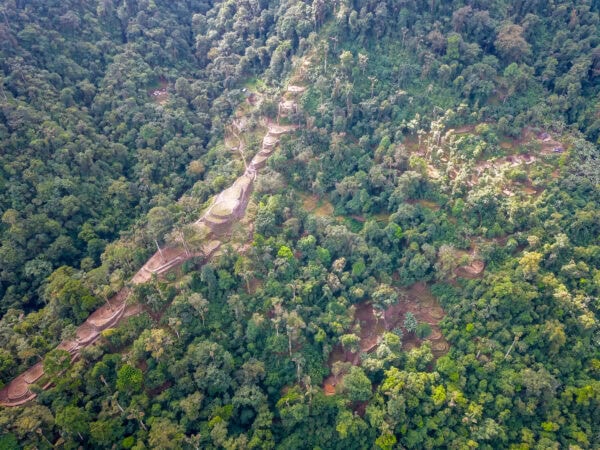Source: Revista Semana December 15, 2019
Nine indigenous reserves have been established in Antioquia since 2016. The reason: the department’s Indigenous Management Unit (Gerencia Indígena), the Amazon Conservation Team and the National Land Agency joined together to support and promote their sovereignty over the territory of their communities.

“When I arrived in these lands, I brought a couple of workers, and we began to chop down trees and clear the land. I came from Pueblo Nuevo, Córdoba, but I’m not from there. Ten years before, I left my community, San Andrés de Sotavento, because there, I had nowhere to cultivate land. When I arrived here, it didn’t even have the same name.” These words are from José Toribío—with his savanna-area accent and his advanced age and his articulate speech—one of the first indigenous Senú who settled in El Bagre, a tropical municipality in the Bajo Cauca Antioqueño.
From the time of colonization, these indigenous people began to migrate because of the persecution to which they were subjected and the historical violence in Colombia. “In 1950, perhaps even since 1948, our grandparents began to flee and distribute themselves in Caucasia and other communities, taking on an identity more as peasants than indigenous people,” says Rubén Gómez Hernández, chief of the Senú reserve El Noventa.
After the migration to El Bagre, several families including that of José Toribío began to form a community in the village community of La Bonga. They named it after the year of the establishment: El Noventa (“The Ninety”). Thus began an ordeal of more than 18 years, with martyrs and tears, until on October 28, 2018 they officially received a title for their territory, of more than 169 hectares, as an indigenous reserve.
“This fact is very important for us because for the Senú, the territory is life, it is everything. We call her mother earth. She provides us with food, and life. It is so much so that there are very important beliefs related to the territory, such as burying the umbilical cord and the placenta,” adds José Toribío.
The leaders of this reserve, as many communities in Antioquia have done, tried for years to obtain the title for the territory. Many took decades to get it. How did they do it? This was largely due to the support they received over the last four years from the Indigenous Management Unit of the government of Antioquia.
Since 2016, this entity has formed an alliance with the National Land Agency and an NGO, the Amazon Conservation Team, to support and negotiate 36 processes to establish indigenous reserves and expand the territories they have ancestrally inhabited. As a result, through November 2019, 7,840.62 hectares have been protected, benefiting 441 families in municipalities including Cáceres, San Juan de Urabá, Ciudad Bolívar, El Bagre and Remedios. Many of them are in areas with mining activity and land disputes between armed groups.
As Llanedt Martínez, director of the Indigenous Management Unit of Antioquia, explains, “Having a titled reserve is the fundamental basis for the development of indigenous communities. All the lasting processes of improvement of their quality of life—including the generation of housing, education, the development of their own government, and environmental land zoning—depend on the inalienable and imprescriptible possession of land.”
The communities are aware of this. In El Noventa, for example, all titled lands were obtained from donations from the members of the community because, as their chieftain expresses, it is known that through titling, there can be no expropriation, and economic benefits will come through the Colombian Sistema General de Participación, which will finance community requirements and projects.
However, the benefits are not only for ancestral peoples. In the words of Carolina Gil, director of the Northwest Amazon program of the Amazon Conservation Team, “ensuring and promoting collective rights over land and sovereignty, and over territory, facilitates the maintenance of traditional cultural systems, enabling the development of sustainable forest management values. And this contributes to the common good because, according to the United Nations, indigenous lands represent about 20 percent of all lands and contain 80 percent of the planet’s biodiversity.”
The indigenous authorities and the Indigenous Management Unit emphasize the importance of the Amazon Conservation Team’s participation in the establishment of the nine reserves that have come to fruition since 2016: on the one hand, because this organization supported the project financially, and on the other, because it contributed its technical knowledge of some 20 years in the protection of tropical forests and the strengthening of the local communities that inhabit them.
The formal creation of El Noventa is the first step to ensuring the permanence of its members in the territory. Actions are still lacking for them to receive effective collective reparation as victims of the longstanding Colombian civil conflict, to protect their leaders from the violence of war and dispossession, and to continue claiming their rights and carrying out their ancestral craftmaking practice. But what is certain is that without land, none of that could happen.
Read the original Spanish article here on Revista Semana: https://www.semana.com/contenidos-editoriales/pueblos-indigenas-su-voz-se-siente/articulo/como-se-estan-titulando-las-tierras-indigenas-en-antioquia/645194
Media Relations
For press release inquiries, please contact us at info@amazonteam.org.
Related Articles
Share this post
Bring awareness to our projects and mission by sharing this post with your friends.




